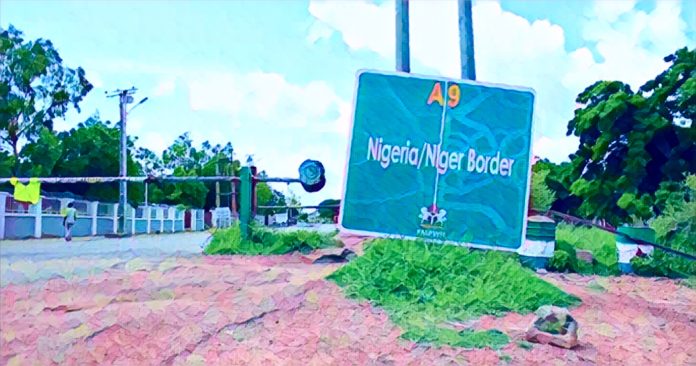KEY POINTS
- Niger accuses Nigeria of harboring French troops near the border.
- Border residents deny claims, calling for peaceful resolutions.
- Economic and social ties between the countries remain vital.
Communities along the Nigeria-Niger border are voicing concerns as tensions escalate between the two nations.
Residents in border towns fear the fallout from allegations by Niger’s military leader, Brig. Gen. Abdourahmane Tchiani, who accused Nigeria of hosting French troops and training camps aimed at destabilizing Niger.
Nigerian officials have denied the claims, dismissing them as unfounded and politically motivated.
Allegations spark fears among border residents
In a Christmas Day interview, Tchiani accused Nigeria of collaborating with France to undermine his administration, specifically citing alleged military bases near Lake Chad and terrorist training camps in Sokoto, Kebbi, and Zamfara states.
However, border community leaders and traders have categorically denied the presence of French troops.
Muhammad Illiyasu, the Magaji of Balle in Sokoto State, said, “I have been here for over 30 years, and I have never seen any foreign military presence. We appeal to the governments to resolve their issues peacefully and not involve the masses.”
Similarly, Muhammad Altine, a Nigerien cattle trader in the Ruwa-Wuri market, dismissed the claims as baseless. “I’ve been here for over 20 years, and there’s no sign of any foreign troops,” he said.
Communities emphasize the need for peace
Many border residents recall the economic hardships caused by Nigeria’s border closure with Niger following ECOWAS sanctions in 2023.
According to Punch, the sanctions, imposed after Tchiani’s military coup, halted trade and disrupted daily life, leaving local economies in disarray.
“As someone whose livelihood depends on cross-border trade, I never want to see such altercations again,” said Hassan Tabani, a trader in Gada Local Government Area of Sokoto. “The last border closure devastated businesses.”
Despite the allegations, daily interactions between border communities remain cordial. In towns like Gudumbali in Borno State and Jibia in Katsina State, residents emphasize the deep historical ties and cultural connections between Nigerians and Nigeriens.
“Most people here don’t even know about these accusations,” said Yahaya Kida, a resident of Garere in Borno. “We want peace to continue between us and our neighbors.”
Economic and social ties remain critical
The border closure following the ECOWAS sanctions highlighted how interdependent the two nations are. Nigeria supplies Niger with essentials like electricity, while Niger provides agricultural products like dates and cattle.
Many in the border communities worry that escalating tensions could once again disrupt these vital exchanges.
Dr. Murtala Ahmed Rufai, a lecturer at Usmanu Danfodiyo University, Sokoto, described Tchiani’s claims as “serious but unfounded.” He added, “This is likely a reaction to Nigeria’s stance on the ECOWAS sanctions, but it’s important for both governments to prioritize dialogue.”
Residents and experts alike stress that resolving the row peacefully is in the best interest of both nations.
For communities along the 1,600 km border, maintaining harmony is critical for their livelihoods and long-standing cultural bonds.



